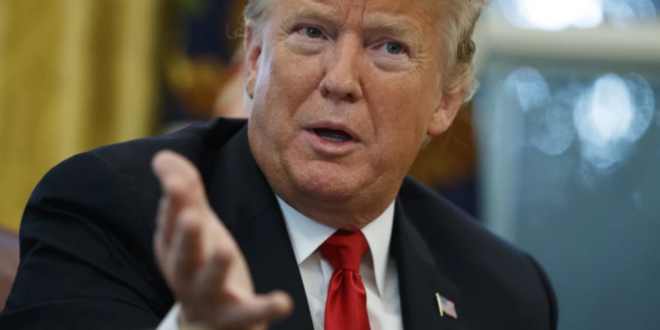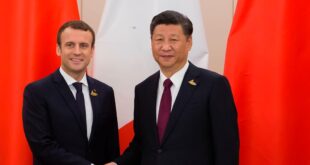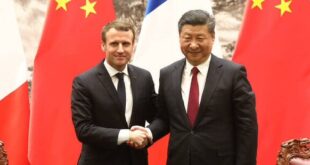Muhamad Yehia
US tech moguls will take ring-side seats for the inauguration of Donald Trump as the 47th US president today, but the new mandate is set to test Europe’s regulation of the tech sector.
US Big Tech started preparing for today’s start of the second term of US Republican President Donald Trump as soon as he was elected last November with companies improving their relationship with the incoming President before the start of the mandate.
But the rapprochement between US tech giants and growing coalescence around a light regulatory approach to tech sits less easily in Europe, where the EU executive is bedding down on grand digital regulatory regimes.
Some of the changes Big Tech has made on the US side – for example Meta’s recent announcement to drop its fact checkers – have led to questions and tensions about Big Tech compliance with EU tech rules including the AI Act and the Digital Services Act (DSA).
Tomorrow, Henna Virkkunen, the EU Commissioner responsible for tech sovereignty, security and democracy, will address concerns by EU lawmakers across different parties in a plenary session in Strasbourg, named “Need to enforce the Digital Services Act to protect democracy on social media platforms including against foreign interference and biased algorithms.
MEPs sought a debate on enforcement of the EU’s Digital Services Act (DSA) and protection of democracy after the Meta change, as well as the debate broadcasted by the owner of X and Trump-ally, Elon Musk, on 9 January with the leader of the German far-right party AfD, Alice Weidel, on his platform.
The DSA debate will be followed the same day by a debate on the consequences of a new Trump administration for transatlantic relations.
German lawmaker Axel Voss (EPP) told Euronews in a statement prior to the broadcast that “During the US election campaign, we have already seen disturbing interference from Elon Musk on X, pushing algorithms with his own political beliefs.”
“As a European Union we need to stand up against platform owners that interfere in our free elections. We need to stand up against fake news. And we cannot accept for social media platforms to become a legal vacuum,” Voss added.
“The new European Commission, especially vice-president Henna Virkkunen, must hold Meta and other tech giants accountable, preventing them from using the Trump election as a pretext to reset online regulations in the US and globally,” said MEP Alex Saliba (Malta/S&D), adding: “The protection of European citizens and society online is at stake, as is the EU’s reputation as a global leader in tech regulation.”
“We are fully enforcing the DMA and the DSA,” Henna Virkkunen told journalists last Wednesday, brushing off reports that the executive was putting its probes into tech companies on ice. “Contrarily to what has been reported, there never having been any delays, the investigations are going on… In the EU everybody who is doing business or having services operating here, have to respect our rules and legislation,” she said.
“The fact that Elon Musk and Mark Zuckerberg already kissed Trump’s ring and Jeff Bezos is joining this broligarchy in the (literal) front rows of Trump’s inauguration, is concerning for both American and European democracies,” MEP Markéta Gregorová (Czechia/Greens) posted on X of the links between between the CEOs and Trump
“In a world where a couple of billionaires can influence millions of votes – and as Bannon made clear in an interview to the Guardian, they are publicly and openly doing it – we just don’t have the same level-playing field to call our elections genuinely democratic anymore,” she added.
Big Tech’s opposition to EU digital regulations probes
The European Commission has begun probing US companies under the DSA on suspicion of breaches of the rules in areas linked to disinformation and protection of children online. Since the end of 2023, it opened investigations into X, Meta’s Facebook and Instagram, TikTok and Aliexpress.
Meta’s decision to replace its fact checking system would be a violation of the DSA if it was implemented similarly in Europe. Although Meta’s decision currently only affects the US, it will be closely watched by lawmakers and privacy advocacy groups.
Last Friday, the Commission took new steps in its investigation into X in ongoing proceedings regarding its recommendation system by requesting further information on its algorithmic functioning.
Big Tech CEO’s have been vocal about their opposition to EU digital regulations. Following Trump’s election, Tim Cook, Apple’s CEO welcomed the new mandate: “Congratulations President Trump on your victory! We look forward to engaging with you and your administration to help make sure the United States continues to lead with and be fueled by ingenuity, innovation, and creativity,” he wrote on X.
In an October podcast interview, Trump revealed that Cook reached out to voice concerns regarding a recent EU court decision that required the company to pay €13bn in overdue taxes to Ireland, along with a €1.8bn fine earlier in the year for limiting competition in the music streaming market.
“Europe has an ever increasing number of laws institutionalizing censorship and making it difficult to build anything innovative there,” Meta’s boss Mark Zuckerberg said in a video, chiming with comments shared by Elon Musk, notably though posts on his social media X.
Trump’s inauguration and Big Tech
Tonight, Mark Zuckerberg will co-host a meeting of Republican billionaires for the Trump inauguration, four years after the Meta CEO banned Trump from Facebook and Instagram.
The top five US tech companies gave 1 million to Trump’s inauguration fund. If donations to recently elected president is common, this inauguration stand out as Microsoft dobled its usual donation while Google triple his. Amazon also gave $1 million and will also broadcast the inauguration live on its platform Prime.
 موقع وجه أفريقيا موقع وجه أفريقيا هو موقع مهتم بمتابعة التطورات في القارة الأفريقية
موقع وجه أفريقيا موقع وجه أفريقيا هو موقع مهتم بمتابعة التطورات في القارة الأفريقية



